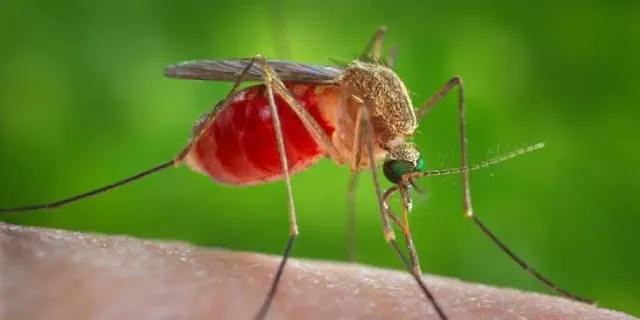 |
| source : foxweather.com |
If you’ve ever vacationed in the Florida Keys, or lived there through a steamy summer, you probably know the real locals aren't just the fish, the lizards, or even the tourists. It’s the mosquitoes. Specifically, the Aedes aegypti. Tiny, relentless, and dangerously good at spreading things like Zika, dengue, and yellow fever.
But this summer, something fascinating is happening in the Keys. The Florida Keys Mosquito Control District (FKMCD) is rolling out a project that sounds like it came straight from a sci-fi thriller, but it’s very real, EPA-approved, and based on solid science.
Meet the Mosquitoes That Can’t Make Babies
Beginning this June, the FKMCD will start releasing lab-raised, male mosquitoes infected with a bacterium called Wolbachia into selected neighborhoods in Key Largo, Plantation Key, and Key Colony Beach. The goal? To crash the local mosquito population, without pesticides.
And before you panic:
-
These are male mosquitoes, which means they don’t bite.
-
Their mission is to mate with local female Aedes aegypti, but due to the Wolbachia infection, the resulting eggs won’t hatch.
It’s a kind of population sabotage... using mosquitoes against mosquitoes.
Why This Is a Big Deal
Let me tell you why this matters: Pesticides are becoming less effective. Mosquitoes, like bacteria with antibiotics, are evolving. FKMCD has been looking for sustainable, science-backed alternatives that don’t harm the environment.
I looked into Wolbachia, and it’s not some frankenstein bacterium, they’re naturally occurring microbes found in many insects. Scientists discovered that when certain mosquito species are infected with Wolbachia, their reproductive systems get scrambled in a very helpful way: They can’t successfully reproduce.
That’s where MosquitoMate, a biotech company based in Kentucky, comes in. They’ve developed the technology and are shipping these lab-reared males to Florida for this summer’s pilot.
This Isn’t the First Time Florida Tried This
The Keys have been ground zero for experimental mosquito control for a while now. If you remember the Oxitec trial in 2022–2024, that was the one with genetically engineered male mosquitoes designed to produce non-viable offspring. While that trial wrapped up last year, the EPA is still reviewing the data before any wider rollout.
FKMCD is now testing this Wolbachia-based technique to see if it might offer a more scalable, cost-effective, and eco-friendly solution.
A Health Mission at Its Core
According to Andrea Leal, Executive Director of FKMCD, the goal is clear: “Protect public health.” That’s not just about reducing annoyance, though let’s be honest, fewer itchy nights would be great, it’s about preventing outbreaks of mosquito-borne illnesses that could cripple communities and economies.
And yes, this is about Florida, but the implications are way bigger. If this works? It could inspire similar programs in tropical and subtropical zones around the world where Aedes aegypti is running wild.
The Bottom Line (And Why It’s Okay to Be Hopeful)
We’re in the middle of a climate shift, with warmer temperatures and wetter seasons stretching mosquito breeding grounds further than ever. Traditional methods are hitting their limits. That’s why biological solutions like Wolbachia-infected mosquitoes are worth watching, and supporting.
It’s not the end-all solution. But it's a big, important step toward smarter, safer mosquito control, the kind that doesn’t soak neighborhoods in chemicals but still helps people stay safe.
This summer, the war on mosquitoes in Florida is going microscopic, and it just might change the game.
